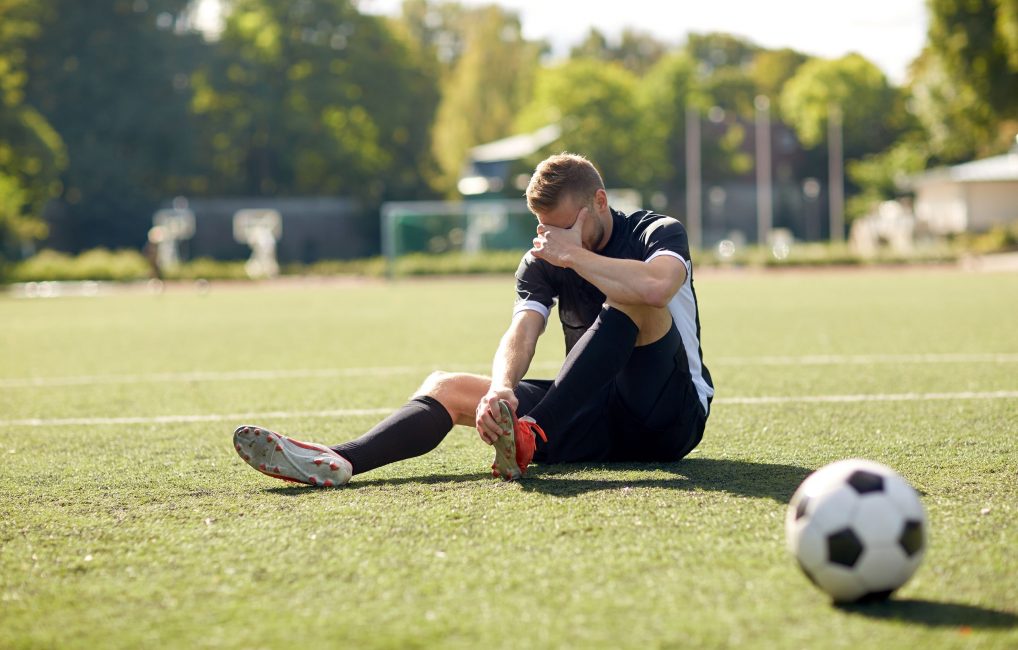
Injury Depression? What You NEED to Know
Whether you are a competitive athlete or a weekend warrior, injuries happen. We have all experienced some small injuries from being active. We get sore, get scratched and maybe even some bruises. We will take it easy for a day and maybe get some simple rehab to recover faster. We will back at our favorite activities in no time, right?
But not all injuries are created equal.
Ever sprained an ankle? Torn an ACL? Torn your rotator cuff? Have you ever had an injury that has kept you from competing or playing the sport you love for a significant amount of time?
If so, then you’ll understand the despair, helplessness, frustration, and often anger that follows a serious or dramatic injury.
But if you haven’t, then those emotions can be difficult to understand and process.
Understanding the Emotions Following Injury
For most competitive athletes, their sport is their reason for being. It is their job. Their life.
For the rest of us, sports and other physical activities are an escape. We use them to relax, rejuvenate, and refresh ourselves. As we exercise our brain releases endorphins which makes us happy.
Now imagine you lost your reason for being. Or pretend that you lost your way to destress and relax. What emotions would you feel?
Frustration? Sadness? Anger? Apathy? No motivation? Lack of appetite?
It is important that you understand that these emotions are normal. Every athlete will respond to an injury differently. Some may not experience any negative emotions whatsoever.
However, you need to be concerned if these emotions worsen over time, seem excessive, or don’t get better.
Picabo Street, a world-class Olympic skier, experienced many of these excessive emotions. In a horrendous skiing crash, Street broke her left leg and blew out her right knee. A month later, Street had shut herself away in a bedroom in her parents’ house with the blinds closed and the doors locked.
She said of this experience:
“I went through a huge depression. I went all the way to rock bottom. I never thought that I ever would experience anything like that in my life…I think it was a combination of the atrophying of my legs, the new scars, and feeling like a caged animal. I went from being a very physical person, a very powerful athlete, to barely having any strength to get from my room to the kitchen. You’re stuck and you can’t do what you normally do and it makes you crazy.”
Street’s experience is more common than you might expect, so it’s imperative that you’re aware of the signs and symptoms of injury-related depression. Some excessive emotions/actions include:
1) Moderate to severe depression
2) Eating disorders
3) Substance abuse
4) Frequent bouts of rage
5) Alienation
How You Can Help
If you know an athlete that is suffering from some of these emotions, there are several things that you can do to help.
Support them. Let them know that you are there to help them through the tough times, through the rehab, and onto a full recovery. Often, it is the love, hope, and motivation of a loved one that will help pull them through.
Help them realize that their personal identity isn’t tied to that specific sport or activity. They have other admirable qualities and other important aspects of their life. Help them pick up another sport, hobby, or activity that they enjoy during the rehabilitation. Or if the injury is career ending, something that they can enjoy for the years to come.
These might include: family activities, golf, book clubs, weight lifting, or vlogging.
Finally, let your athlete know that it is okay to get professional help. Give them permission and empower them with all the resources possible for a speedy physical and mental recovery. A mental health or sports psychologist has experience dealing with these types of problems and will be able to provide the best care for your athlete.
Picabo Street said that once she started to focus on all the things that she is grateful for — the good instead of the bad — that she started to overcome her depression.
Whether you are an athlete overcoming post-injury depression or are trying to help a loved-one, recognize that post-injury depression isn’t something to be taken lightly. Please take the proper steps and seek out trained medical professionals to help you on your road to recovery, both mentally and physically.
The information provided is for general interest only and should not be misconstrued as a diagnosis, prognosis or treatment recommendation. This information does not in any way constitute the practice of medicine, or any other health care profession. Readers are directed to consult their health care provider regarding their specific health situation. Marque Medical is not liable for any action taken by a reader based upon this information.
